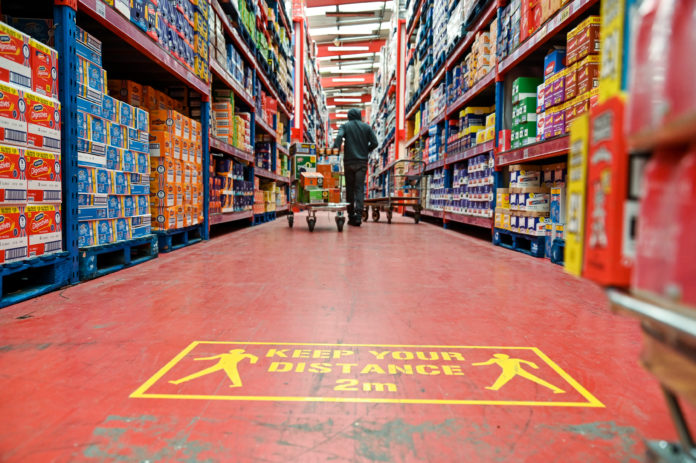Paul Hill looks at what the easing of lockdown means for the channel
At the time of writing, the government lockdown has started to ease, with the Chancellor’s ‘Eat Out To Help Out’ plan hoping to entice consumers back into foodservice outlets and reignite an industry that has laid dormant for months.
As far as the The Federations of Wholesale Distributors (FWD) is concerned, its chief executive James Bielby believes there is still work to be done in order to support the wholesale channel, with the government making it clear of a preference to encourage economic growth from the pocket of the consumer upwards, rather than in the form of sector-specific support for supply chains.
“He (the Chancellor )needs to intervene more directly. Hospitality, so dependent on consumer confidence and international tourism, will recover very gradually, with potential setbacks along the way, and ‘trickle-up’ isn’t a helpful strategy for wholesalers with high overheads, depleted reserves and a reliance on steady cashflow,” explained Bielby.
A recent EFRA Select Committee and its investigation into food supply and Covid-19, has called on government to produce a clear plan of support for wholesalers and suppliers over the next 18 months.
70% of consumers planning on using delivery services after lockdown, says report
The report says the government could have done more to anticipate the supply chain impacts of its decision to shut down the hospitality sector and says it must work with smaller wholesalers to “understand their concerns and monitor their health” as the sector restarts.
“We may have to wait until the budget in the autumn, but I’m still determined to see our sector get the direct support it needs and deserves,” he said. “It will be a fight. With the exception of hospitality, the arts, fishing and dairy, no sector of any industry can claim to have secured itself special treatment from the Treasury.”
Meanwhile, the risk of a second wave still gathers apace, with localised lockdown gradually becoming more frequent. With this in mind, Parfetts has completed preparations for a possible second wave, with wholesaler expanding its stock holding levels with additional storage facilities.
It has also continued enhanced staffing levels and Covid secure measures since lockdown was eased, with professional security guards now based in depot trading hours in order to ensure the social distancing measures are kept. It is also still limiting the number of customers that can enter a depot at any one time and implemented queuing systems.
Furthermore, it increased its direct load facilities where customers pull up and a member of staff loads straight into the van. It has also invested in expanding both its click and collect service and delivery capacity to reduce numbers in the depot.
“We know this year, and the lockdown period, in particular, has proven exceptionally challenging for retailers,” explained retail director Guy Swindell “We believe the steps we have taken since March have provided an industry-leading service through the crisis.”
“We already have two depots, in Manchester and Halifax, that are in areas of local lockdown and it’s clear that the government is concerned about a possible second wave in Autumn. Rigorous planning has been completed to ensure we have adequate stocks of the essentials from flour to toilet rolls,” he added.
As we move towards the end of the year, every aspect of the wholesale industry needs to be ready for the changes that have and will take place as we return to normality. Availability, distribution, and supply chain structure are just three areas that will change as consumer expectations evolve wit in this new economic environment.








